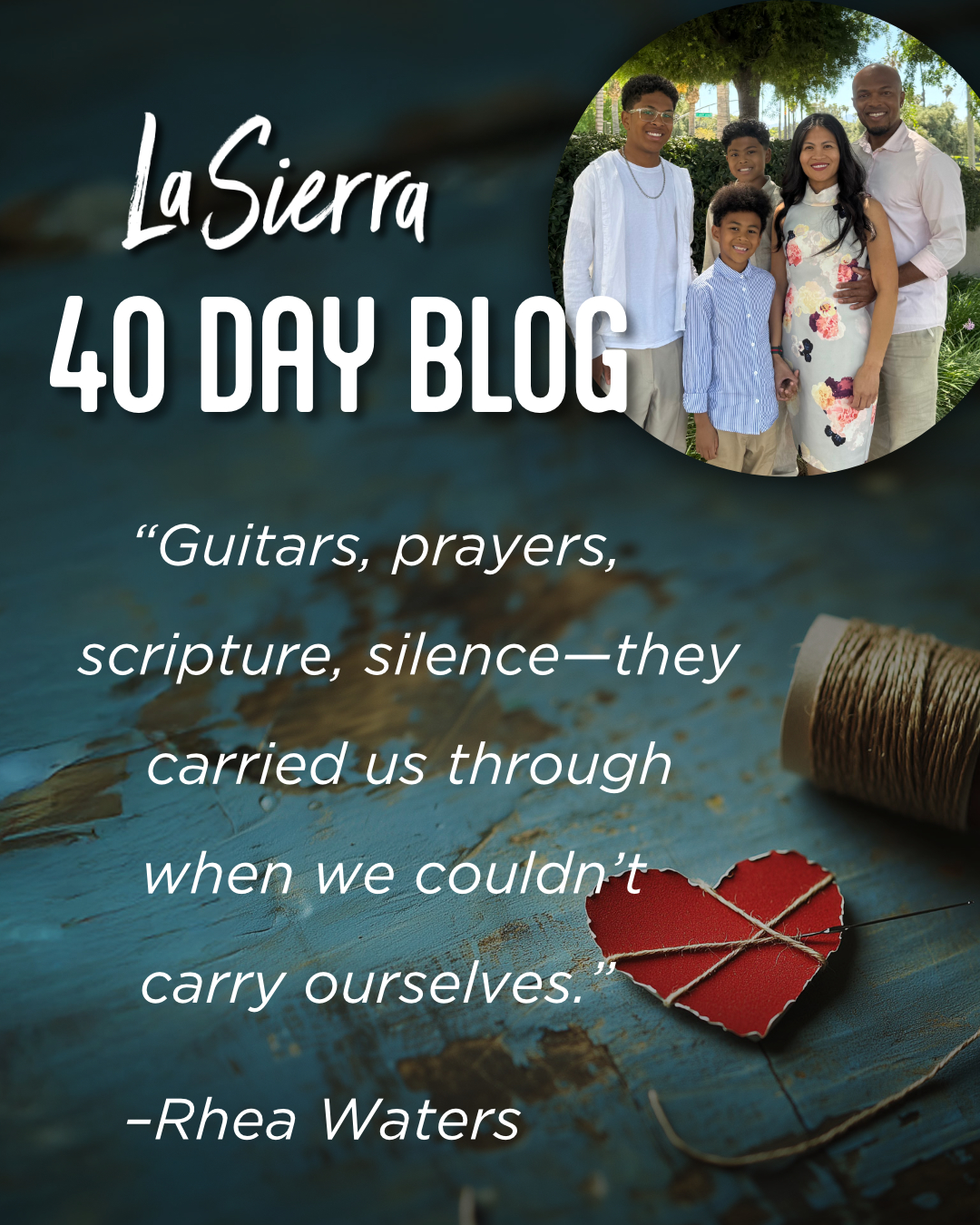April 2020 was the month my mom passed—a time when the world was shut down, when borders were closed, and isolation ruled. And yet, even in that stillness, God never stopped speaking.
My mom was the most social person I’ve ever known. She lit up any room she entered. She loved to cook, loved to talk, loved to laugh, and gather people together. She thrived in community, and her kitchen table was always a place of joy. That’s what made her final months so painful—because the world had gone quiet. During the pandemic, we had to keep our distance, even from the people we loved most. But somehow, love still found a way.
We drove up to the Canadian border together. My husband Aaron dropped me off there, and then turned around and made the long drive back to his parents’ house in Carson, Washington, with our other two boys. I crossed the border just in time—on the very day it closed. I didn’t know how long I’d stay, only that I needed to be there.
Each day became a rhythm of worship, caregiving, grief, and grace. I cared for my two-year-old and my dying mom during the day, and my dad took the night shift. I leaned on a therapist, my husband, and friends to process the overwhelming weight of it all. We were still helping our kids do online school from across the border, and had to quarantine for two weeks when we arrived, per Canadian rules.
My brother stopped by every day—quiet visits full of love, support, and presence. Just knowing he was nearby meant everything. My oldest brother drove in from the island the week before she passed, and his timing felt heaven-sent. Together, we held space for one another and for our mom.
Friends and family found ways to sneak in and say goodbye—masked, cautious, sacred moments of prayer and gratitude. And in the background, Jesus was always close. My mom would often say, “Turn off the TV, turn down the music—Jesus is coming to visit.” Once, she said she wanted to cook for Him. I asked her what she’d make. She couldn’t finish the sentence. Maybe the cancer had fogged her thoughts. Maybe she was already meeting Him.
The emotional weight of it all grew heavier as the days went by. I tried to carry it, but eventually I reached my limit. I called Aaron and asked him to come to Canada. I needed him. And just like that, he and the boys came. That’s when it began to feel bearable again.
Then came the morning she died.
I had come downstairs, like I always did, to begin her care—ready to brush her teeth, her hair, bathe her, talk to her softly as I moved through the routine. Her brother had drove in the night before and had spent the early hours talking with her. They had shared a long, meaningful conversation—something I believe was a final gift. After he stepped out to eat breakfast, I came in to continue her routine.
I had just begun when I sensed something shift.
She was still. Too still.
I reached for the pulse in her neck, but couldn’t find one. My hands began to shake. I called my dad and my husband. In the panic, I found it again—but it was slow, thready. Fading. We surrounded her, held her, sang over her, and prayed through our tears.
And I picked up my phone and called both of my brothers. They needed to know. They needed to hear it from me in real time—that this moment had come.
I turned to my boys, who had come into the room with wide eyes and trembling hearts, and I said, through tears, “This moment—this right here—is exactly why Jesus died on the cross. So that death would not be the end.”
And that is the hope I carry in my bones.
My mom loved Jesus with her whole heart. Even in her last days, He was on her lips. She was waiting for Him. Expecting Him. And I believe He came to meet her in that quiet morning.
After she passed, our church family in Canada came to our home and stood outside, socially-distanced and reverent, singing hymns of comfort and hope into the air as a blanket of comfort. Their presence spoke louder than words. Back in Southern California, our church community would gather on FaceTime with us on Friday nights while we were gone for worship and encouragement. Guitars, prayers, scripture, silence—they carried us through when we couldn’t carry ourselves.
The world felt still, but heaven was moving.
My mom died during one of the loneliest times in history, but she was not alone. She was surrounded by those who loved her. And more than that—she was held by the God she loved. “Precious in the sight of the Lord is the death of his faithful servants” (Psalm 116:15). I saw that with my own eyes.
Her life was one of joy, connection, food, and faith. Her death was sacred. And the hope she clung to is the same hope I pass to my children: that Jesus conquered death. That He rose again. That because of Him, we do not grieve as those who have no hope (1 Thessalonians 4:13).
We grieve with hope. We wait with hope. And one day, we will sit at the table with her again—maybe with something she’s cooked—laughing, talking, gathered together in the presence of Jesus.
Until then, we carry her light.
Rhea Waters is the mom of three boys and wife to her amazing husband of 15 years. She hails from Canada, grew up as a missionary kid in Singapore, has been practicing dental hygiene for 19 years, and is trying her hand at myofunctional therapy.

